December 2021

December 2021
Director Im Kwon Taek is a living legend in the Korean film industry. He has been working consistently for 60 years and has produced 102 films. His fierce thoughts and passion to make an “Im Kwon Taek-like movie” and “films that only Koreans can make” have left a monumental mark in the history of Korean cinema.
Written by
Yu Pureum
Photographed by
Im Kwon Taek Film
Museum of Dongseo
University
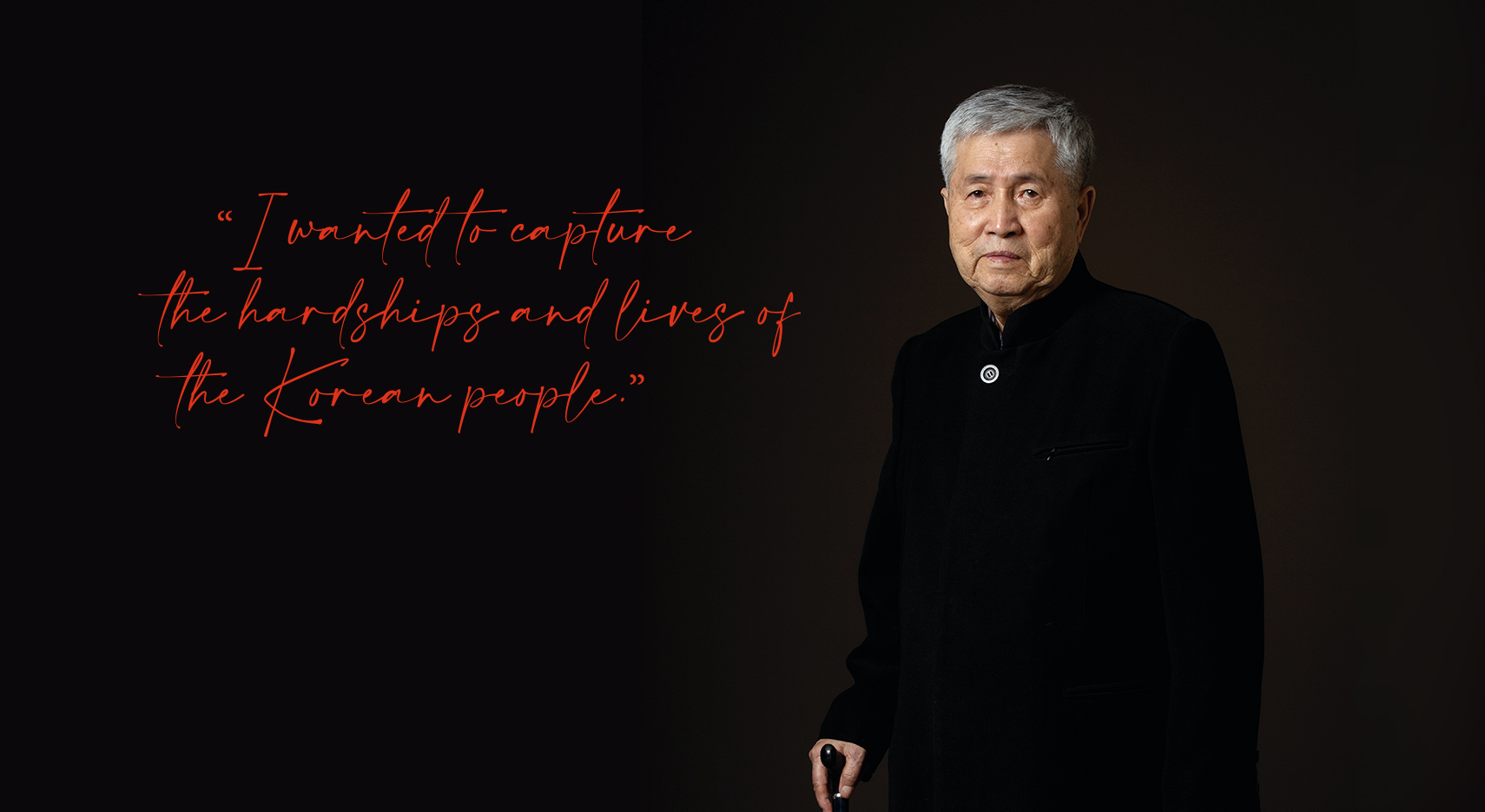 © Cine21
© Cine21
Director Im Kwon Taek’s childhood was accompanied by turbulent times. He was born during the Japanese colonial period. When he was in the third grade of elementary school, Korea was liberated from Japan, but soon the Korean War broke out and an intense ideological battle began. It was an era when you spent your time wondering how to survive day-to-day.
Im’s life was no different. In particular, his family suffered much hardship in the midst of the ideological battles. As his family’s financial conditions declined, Im dropped out of middle school and moved to Busan. The armistice brought an end to the Korean War while he was living as a bearer and selling military boots. After that, the military unit where he was working went to Seoul to set up a film company, and through that connection, Im also entered the film industry.
“Working hard has always been a part of me,” he said. “If you can’t survive there, it’s difficult to make a living, so I worked really hard not to be treated like a useless person. Also, working on movies was so much fun. However, I had no hope of becoming a film director. This is because I never studied film. I just had fun and worked hard, but after five years passed, I got an offer to direct.”
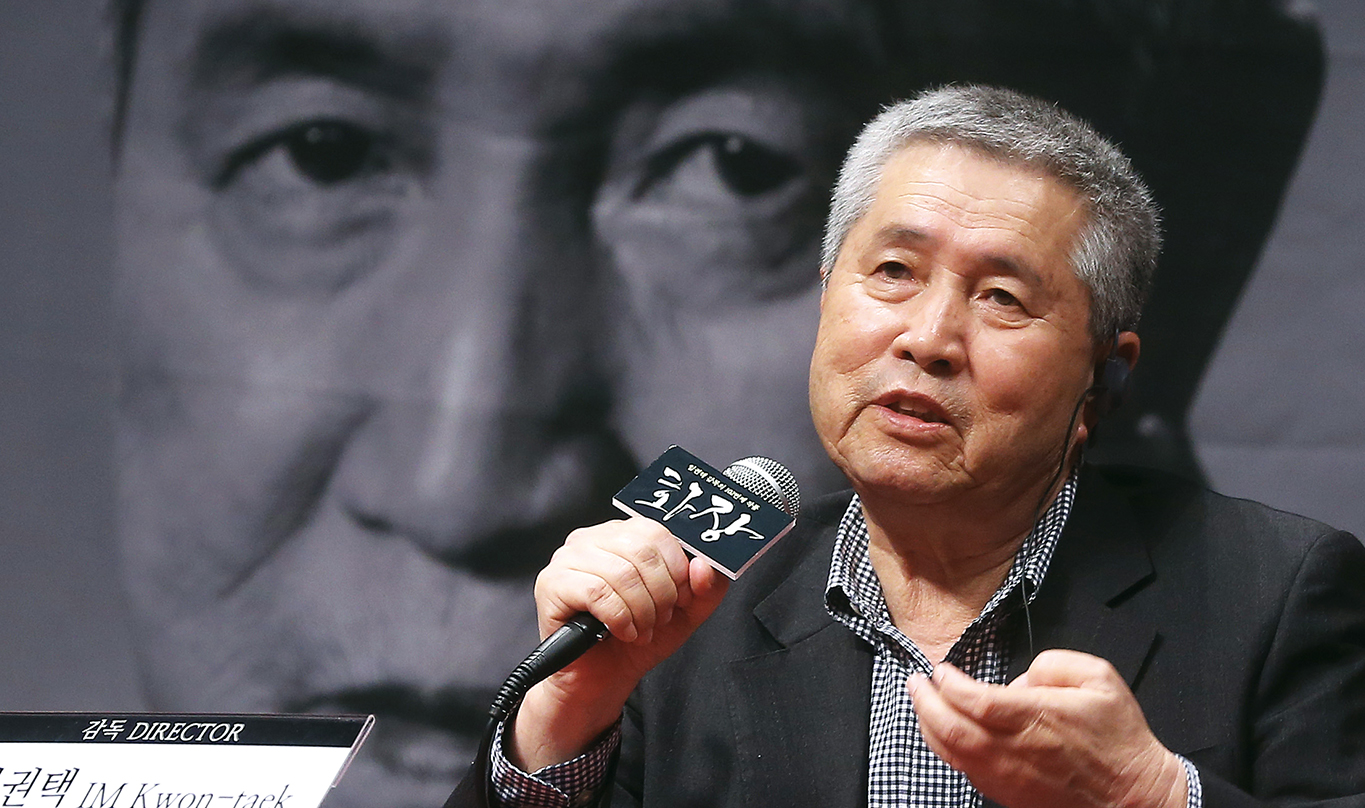 Im answers questions at a press conference for his 102nd film, “Revivre.” © Yonhap News
Im answers questions at a press conference for his 102nd film, “Revivre.” © Yonhap News
Becoming a director relatively quickly, Im achieved immediate success when the first movie he directed, “Farewell to the Duman River,” became a huge hit. Filming about 50 films over the next 10 years, he finally found his unique movie style. “I made 50 films in 10 years, and at that time, I had no intention of making a particularly good film,” he said. “I just thought that it would be nice if the movie I made had a quality close to Hollywood. At that time, my films were simply for the box office.”
Ten years after he directed his first work, he began to ask himself what sort of film he should make. “I thought that I should make a movie that no non-Korean could make,” he said. “I wanted to capture the hardships and lives of Korean people, as well as the cultural personality of Korea, even if the movie is not perfect. Because that’s something that cannot be made in any other country in the world.”
Just such a film was “Seopyeonje.” “I was having a meal at a restaurant in my hometown, which I had been away from for a long time after becoming a film director, when pansori musicians came in,” he said, referring to Korea’s lyrical storytelling. “I was captivated by their performance. I thought, ‘Someday I must make a pansori movie.’ When the right time came, I made an offer to a film company. It’s not going to be a box office hit, I told them, but it can promote pansori and it’s a low budget production, so let’s try it out.”
Contrary to expectations, “Seopyeonje” became the first Korean film to surpass 1 million viewers in Seoul, becoming a huge box office hit. “An audience member came and thanked me,” he said. “I’d heard many people tell me my films were fun, but this is the first time I’d ever heard somebody thank me for a film. Many students said they discovered the beauty of Korea after watching ‘Seopyeonje.’ I learned that movies could have a good influence on society, and it was rewarding enough to think that I did something good in my cinematic life.”
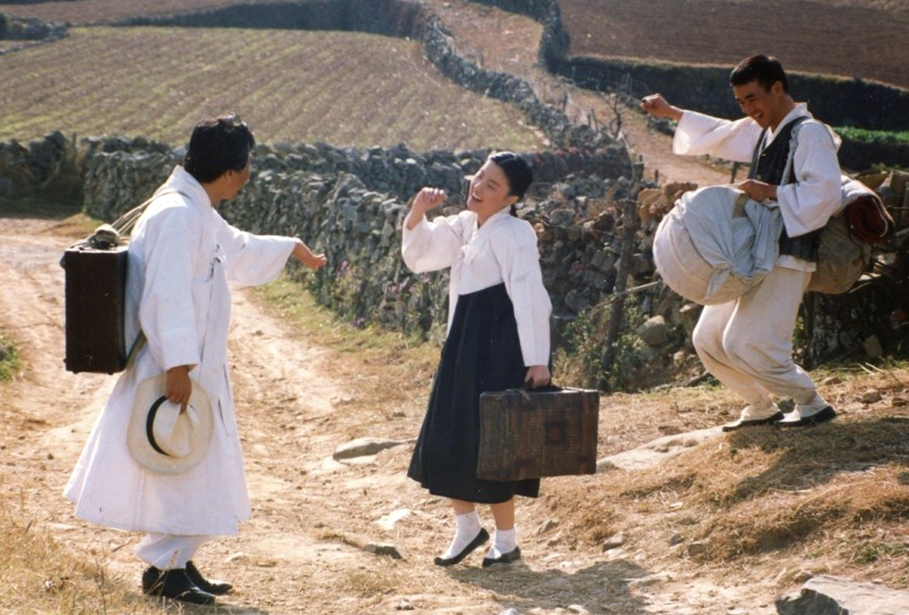 © Taeheung Pictures
© Taeheung Pictures
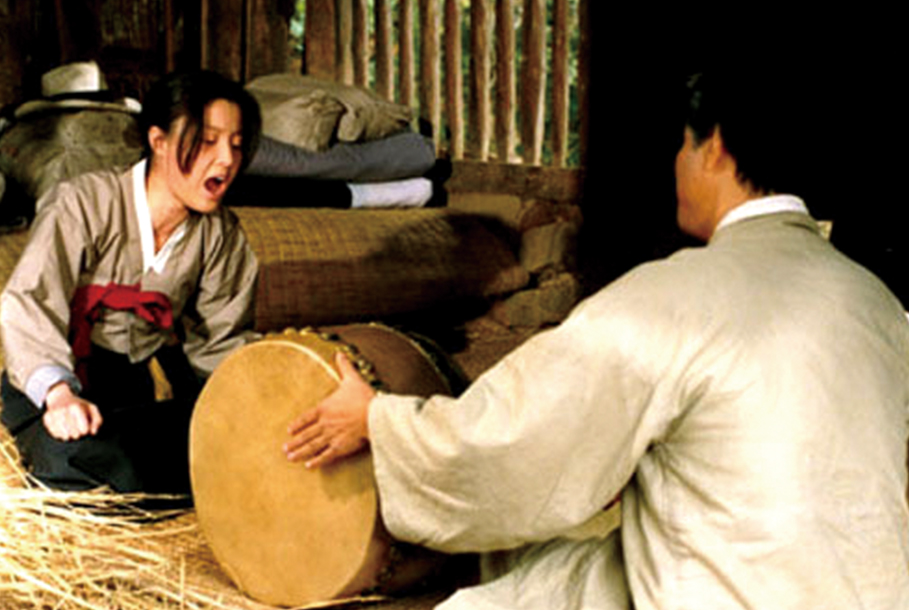 The film “Seopyeonje,” which deals with the Korean form of lyrical storytelling called pansori, was the first Korean film to record over 1 million viewers. © Taeheung Pictures
The film “Seopyeonje,” which deals with the Korean form of lyrical storytelling called pansori, was the first Korean film to record over 1 million viewers. © Taeheung Pictures
In accordance with Im’s idea that “a Korean-like film is a work that cannot be made in any other country,” his films featuring Korea slowly began to attract attention overseas. At the 2002 Cannes Film Festival, he won the Best Director Award for “Chihwaseon,” which depicts the life of the late Joseon painter Jang Seung-eop. The Berlin Film Festival gave Im the Honorary Golden Bear award in 2005, pointing to his “great achievements as a movie master” throughout his long career and calling him “the root of Korean cinema.”
“I thought that I really wanted to achieve results at overseas film festivals,” he said. “When it comes to making a movie, there are a lot of things you need help with. Every time I get that kind of help, I felt more responsible. The more support I receive, the better the movie I have to make to return the favor. I was very happy to think that I had returned the favor to those who helped me by winning the Best Director Award at the Cannes Film Festival. Of course, as a film director, I was very grateful.” Not long after, he shot his 102nd film. “I think I’ve shot all the movies that deserve to be shot,” he said. “But I still haven’t been able to shoot a work that I’m satisfied with myself. I still ask the question, ‘What kind of Korea will the audience meet through my work?’ I have a desire to make movies by finding materials that I can immerse myself in with the theme of ‘Korea’ for both me and the audience who watch movies. I would like to deal with the religious nature of the Korean people and Korean shamanism, but I think it is a step that should be passed on to someone who can do better, even if given the opportunity.”
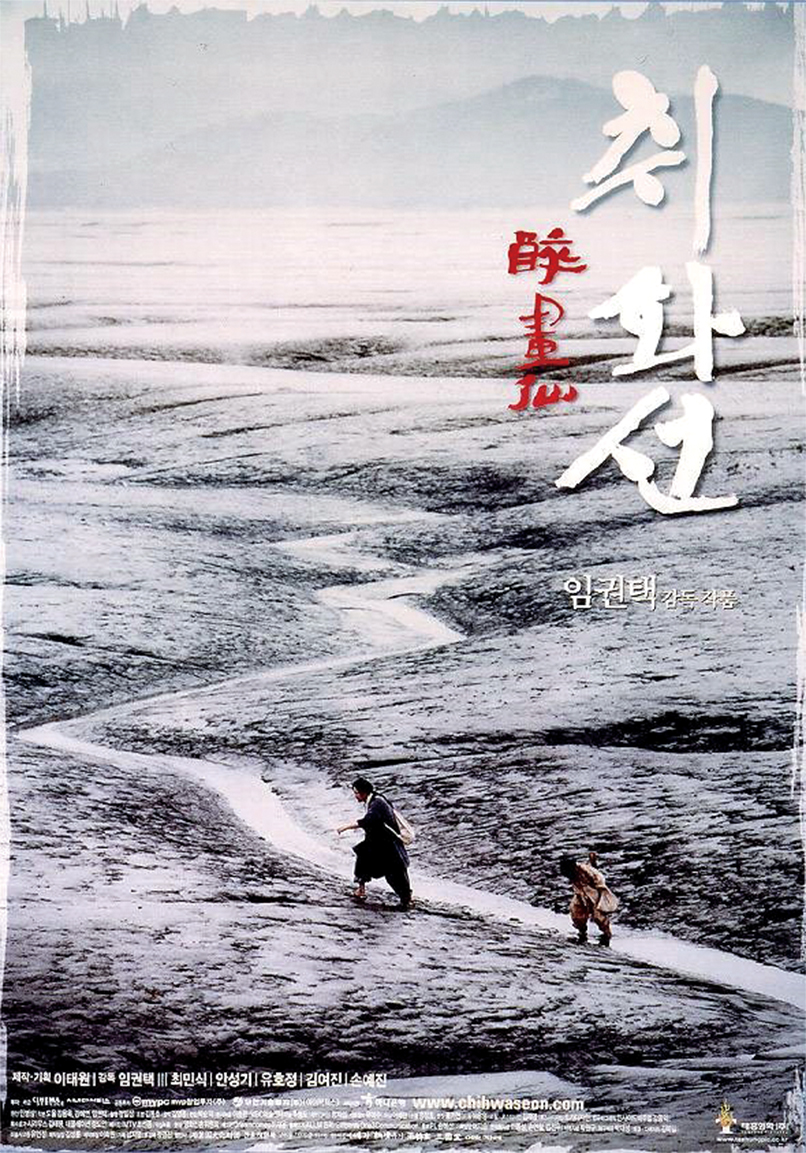 At the 2002 Cannes Film Festival, Im won the Best Director Award for “Chihwaseon,” which depicts the life of the late Joseon painter Jang Seung-eop. The film has won praise for its artistry, including its depictions of Korea’s beautiful natural environment. © Taeheung Pictures
At the 2002 Cannes Film Festival, Im won the Best Director Award for “Chihwaseon,” which depicts the life of the late Joseon painter Jang Seung-eop. The film has won praise for its artistry, including its depictions of Korea’s beautiful natural environment. © Taeheung Pictures
Im is preparing for a “beautiful ending” with the film industry in which he has worked for 60 years. “Once you enter the world of cinema, you will be obsessed with it for the rest of your life,” he said. “Since I first started working in the film industry, I have been immersed in films without hesitation, and 60 years have passed in a blink of an eye. To be honest, I don’t know if I will continue my creative activities in the future. I’m getting old and I have health problems.”
He added, “Now, no matter how desperate I am, I feel like I have reached the age where I have to distance myself from movies.”
Having vacated the director’s chair, Im is nurturing the Korean film industry’s next generation of talent. He is currently an endowed chair professor at the Im Kwon Taek College of Film and Arts at Dongseo University. What advice would he most like to give to young students who first dreamed of entering film after seeing his work? “A film director is a job that communicates with the audience by observing the world and putting in the film the parts that you want to share with the audience,” he said. “That’s why you should be most wary of lies. I want young students to be a film director who can honestly tell the story they want to tell without trying to deceive the audience or sprucing up their own opinion.”
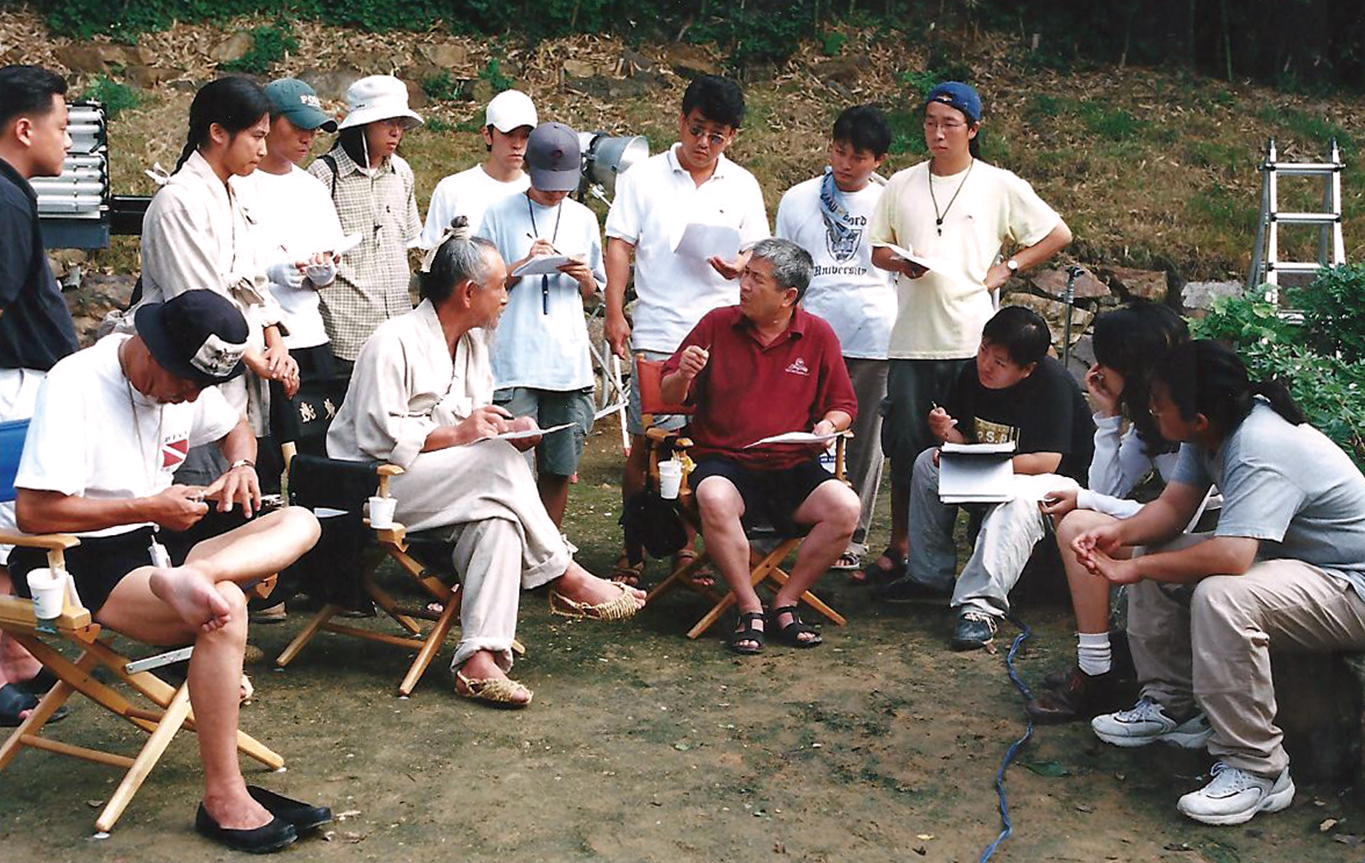 Im talks with actors and staff ahead of filming.
Im talks with actors and staff ahead of filming.